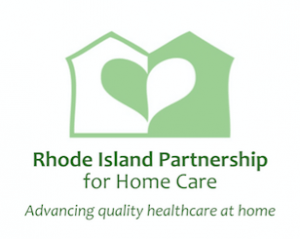
Hundreds of Home Care Workers Submit Resignations in Response to COVID-19 Vaccination Mandate
Rhode Island’s home care providers are anticipating a dramatic reduction in available workers as a result of 216-RICR-20-15-8. This emergency state regulation enacted on August 17, 2021 requires all licensed healthcare workers and providers be vaccinated against COVID-19 by October 1, 2021. While limited permanent medical exemptions will be granted by the Rhode Island Department of Health, religious exemptions and temporary medical exemptions are disallowed. As a result, home care providers are receiving hundreds of resignations from nurses, allied health professionals, nurse assistants, social workers, physical therapists, occupational therapists, speech-language pathologists and office staff that are not intending to be fully vaccinated by the regulatory deadline.
Current projections have over 1,000 home care patients and clients without continuity of care by September 30, 2021 due to healthcare workforce displacement caused by enacting this emergency regulation. While this figure represents only a small fraction of providers’ cumulative census (approximately 4.7%), this will impact home care patients and clients residing in every Rhode Island city and town. The Rhode Island Partnership for Home Care has requested that the Rhode Island Department of Health exempt home care from this mandate.
“Unlike facility-based healthcare settings, such as hospitals and nursing homes, home care providers cannot control their patients’ and clients’ care delivery environment”, said Nicholas Oliver, Executive Director of the Rhode Island Partnership for Home Care. “Home care patients and clients have the right to allow unvaccinated persons to live and visit their homes. These home environments offer greater risk of COVID-19 breakthrough variant exposure than healthcare workers that have been properly masking and wearing personal protective equipment for the past 18 months.”
Michael Bigney, President of the Board of Directors for the Rhode Island Partnership for Home Care and Administrator of Home Health and Hospice Care of Nursing Placement, headquartered in Pawtucket, added that “While home care administrators are supportive of patients, clients and employees getting vaccinated, it should remain a decision between an individual patient and their physician. We are losing excellent direct care staff that have been on the frontline throughout this pandemic. I hope that every displaced patient and client calls Governor McKee to tell him that this mandate is wrong. Discharging vulnerable homebound patients and clients without continuity of home care may contribute to more hospitalizations than any COVID-19 breakthrough variant. It does not seem that Governor McKee or his Health Department thought through this policy before enacting it.”
Short of an exemption for this class of healthcare workers, the Rhode Island Partnership for Home Care requested that the Rhode Island Department of Health develop a process to accept neglect reporting specific to compliance with this emergency regulation. By creating a separate process, the Rhode Island Department of Health, the Rhode Island Office of the Long-Term Care Ombudsman, municipal senior advocate police officers and other state and local case management entities can prepare for the sudden influx of reported cases and identify alternative resources to stabilize each member of their community that are vulnerable, homebound and soon to be without care. The Rhode Island Department of Health has yet to respond to this request.
Oliver added, “While we hope that all remaining unvaccinated home care workers will reconsider their vaccination choice, we are requesting that the Health Department and municipal leaders prepare for this potential widespread problem caused by this emergency regulation. Mayors, city and town council members and General Assembly members should contact Governor Daniel McKee and request that home care providers be exempted from this emergency regulation because of its unique healthcare delivery environment and the subsequent consequences to cities and towns by a sudden reduction in available home care workforce.”








Comments